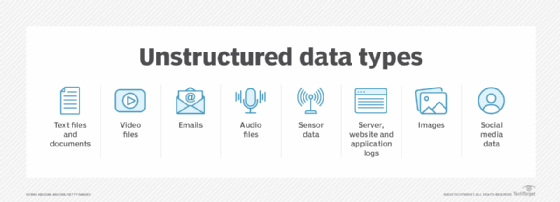Are flash workloads suited to handling unstructured data?
The storage of unstructured data is a hurdle for many organizations. Object storage keeps it organized but lacks speed thanks to hard disks. Luckily, a better way is on the rise.
These days, as you peruse the storage news, it's clear that the market is moving inexorably closer to a world in which all-flash is the norm. Although we're still years from that reality, the fact is that flash media is creeping into more workload operations with each passing day.
One of the key issues organizations are grappling with today is handling unstructured data. unstructured data includes Word documents, pictures, videos, presentations, log files, social media posts and any other data that does not have a well-defined structure. Some estimates place the amount of unstructured data in the enterprise as over 80% of all data. It's expensive to support, and it adds significant complexity to a company that wants to be able to maximize its data use.
As flash media pricing continues to drop, flash storage systems are being brought to bear to address far more use cases than they used to. As a result of this slow crawl into data center dominance, one flash storage workload rising in popularity is handling unstructured data.
Today, object storage has emerged as the best way to help organizations rein in the chaos that can occur when there is too much unstructured data in an organization. An object storage system that takes advantage of flash storage, either in an all-flash configuration or as a part of a hybrid scenario, can help companies bring order to handling unstructured data, while also ensuring that accessing it and using it can be done quickly.
With an object store, each stored object -- a file, picture and so on -- is accompanied by comprehensive metadata, which is basically a database that describes the characteristics, and sometimes the content, of the object being stored. By using an object store, companies can make that previously difficult-to-handle unstructured data system an easily searched repository that enables comprehensive search capability, thereby bringing light back to dark data.

Previously, object storage relied on hard disks as a storage medium. While low in price, handling unstructured data with HDDs will cost you in speed and performance. Now that the price gap between HDDs and flash storage is closing, the latter has become a more viable option for use with object storage systems. Coupled with the speed and efficiency of flash media, an object store becomes a speedy catalog of all of an organization's knowledge.





